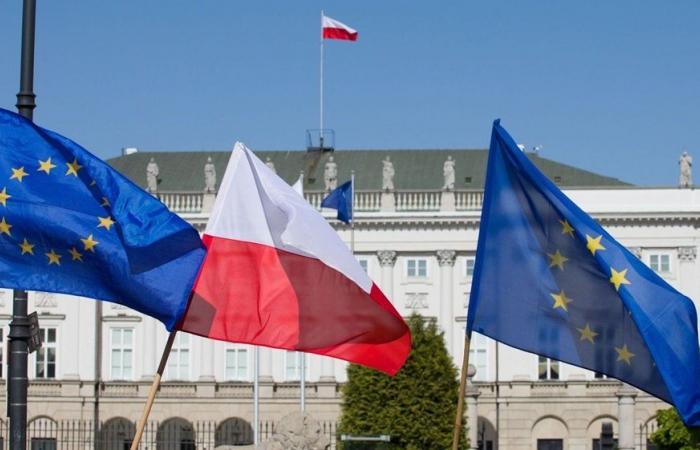The Polish presidencywho chose the theme of “Safety in Europe ” for its mandate, revolves around the notion of security in all senses of the term: external, internal, informational, economic, energy, food and health security.
If the role of the rotating presidency of the Council of the EU consists mainly of ensuring the management of the European agenda and the promotion of collaboration between Member States, Poland intends to leave its mark on these first six months of 2025. She will, all the same, be called upon to coordinate with the outgoing presidencies (Hungary) and following (Denmark), in the interest of continuity and respect for the treaties.
In its program, published on the official website of the Polish EU Presidency, Warsaw pledges to encourage an in-depth debate on European defense financing and to strengthen cooperation with EU partners.I’LL TAKE and non-EU partners, mainly UNITED STATESas well as the United Kingdomthe South Korea and other like-minded countries.
Economic security and, by extension, energy security are also among the priorities of the Polish presidency, which considers the reduction of energy costs as “a must” to strengthen the competitiveness of the EU economy.
Regarding the climate policyPoland, the EU country most dependent on coal, will, it is said, propose “a pragmatic approach which balances the energy transition with the economic stability and the industrial competitiveness“.
About the European Green Dealthe priority of the Polish presidency will be to “ensure that climate policies do not harm the competitiveness of farmers”.
Thus, Warsaw advocates the mobilization of private capital to alleviate the financial burden on States in the transition to clean or renewable energies, so that companies can impose their own pace on the process, rather than introducing overly ambitious legislation accompanied by an inflexible schedule.
During its presidency, Poland intends to play an “important role” in shaping the debate on the reform of the common agricultural policy (CAP) after 2027, because its mandate coincides with the first stages of negotiations on the future CAP, which, from the Polish point of view, will have to take into account the future accession of new members.
At the same time, Poland should request the review of the free trade agreement with Ukraine, which it considers “detrimental” to the interests of its farmers, and the agreement with Mercosur, which arouses reluctance in several states EU partners.
On the issue of the digital transformation of Europe, Poland intends to influence the relaxation of the dense network of regulations created by Brussels, ensure that the digitalization of the economy extends to small businesses and promote training of cybersecurity professionals to face growing threats in this area.
Among the urgent measures, Warsaw wants to work on the simplification of VAT and the fight against excessive regulations that affect companies in the most innovative sectors, as well as the elimination of roaming charges, within the framework of the single market digital.
The Polish presidency of the EU, Poland’s second after that of 2011, will have its work cut out to help address the many challenges facing the economic bloc in key areas such as immigration, security, competitiveness. and relations with Washington with the arrival of Donald Trump in power, while trying to “redefine Poland’s increasingly important role on the international stage”.
The experience of Polish Prime Minister Donald Tusk, who held the presidency of the European Council from 2014 to 2019, will be useful for the rotating Polish presidency of the Council of the EU, with a view to carrying out the numerous European projects and having the best possible coordination with the European Commission, the European Parliament and the European Council, chaired by the Portuguese Antonio Costa, new boss of the assembly of heads of state or government of the 27 member states.






